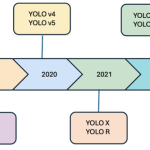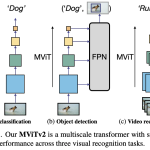Ever wondered what money truly is? Uncover the invisible nature of our financial system, how money is created, and its profound impact on your daily life. Learn essential personal finance skills to navigate this ever-changing game.
Have you ever looked at your bank balance and wondered: What is money, really? It sounds strange, but think about it. Every paycheck, every transfer, every tap of your card for coffee – do you ever truly see money? Just numbers dancing on a screen, right? No jingle, no physical exchange. So, where is the money?
The truth is, much of what we call money today doesn’t exist in physical form. It exists as a digitized collective belief, validated by banks and maintained by a system that, unfortunately, most of us are never taught to understand. You think you have money, but in reality, you merely have the right to use a number within a system. And how that system operates, who creates money, why it loses value, or why housing prices skyrocket while salaries stagnate – these aren’t just questions for economists. They impact you every single day, from the price of your bubble tea to the apartment you dream of buying, your savings, and your entire financial future.
The Invisible Nature of Money: A Collective Belief
It might sound complex, but you don’t need to be an expert to grasp the core idea. Just dare to ask: Is money real? From that question, you’ll uncover a world operating behind the numbers. A world where money isn’t a tangible object, but power. Not something you have, but something you are permitted to use. And most importantly, if you don’t understand the rules of the game, you’ll always be the one bearing the ultimate risk.
Money’s Epic Journey: From Barter to Bits
If we strip away all the glamorous technology and confusing numbers on today’s banking apps, what we call money is simply a concept that has evolved over thousands of years. Its journey from bartering goods to precious metals, then to paper, and finally to virtual numbers, is a mirror reflecting humanity’s trust in a system that sometimes even they don’t fully comprehend.
Initially, there was no money. People exchanged goods directly: a chicken for salt, an axe for two animal hides. This ‘value’ was intuitive but incredibly inconvenient. So, humanity devised a solution: choose an item everyone would readily accept, whether they needed it or not. From seashells and cocoa beans to salt, and eventually, gold and silver – rare, beautiful, and hard to counterfeit. But notice this: it wasn’t gold and silver themselves that possessed magical power, but the fact that everyone agreed these items had value. In other words, the first monetary systems were built on the foundation of one thing: collective belief.
As trade expanded, carrying heaps of precious metals became dangerous and inconvenient. People began depositing gold with goldsmiths and received a paper receipt confirming their deposit. This paper, in essence, had no intrinsic value. But because it was backed by gold, and because everyone trusted the goldsmith, the paper began to circulate as money. This was the first paper money, and once again, it was trust that made it work.
By the 20th century, the monetary system took a controversial turn as nations abandoned the gold standard. Paper money was no longer backed by any physical asset. From that moment, money stopped representing gold; it simply was money – an abstract promise that the issuing government had the ability and responsibility to maintain its value. And then, money entered its digital phase: the numbers on your phone screen, cashless transactions – all digital money. No paper, no gold, nothing tangible. Just data recorded and updated in milliseconds.
Càng ngày tiền càng vô hình và điều duy nhất khiến nó có giá trị chính là niềm tin mà bạn, tôi và hàng triệu người khác cùng nhau đặt vào hệ thống ấy.
The more invisible money becomes, the only thing that gives it value is the trust you, I, and millions of others collectively place in the system.
The Unseen Hand: How Money is Truly Created
So, where does money actually come from? Who creates it? Here’s something many don’t realize: banks aren’t just places to keep money; they’re also places that create money. Not by printing or minting, but by generating it from numbers.
When you deposit 100 million VND into a bank, you might think the bank holds that exact 100 million in its vault, waiting for you to withdraw it. In reality, they only keep a small fraction – perhaps 10%, sometimes even less. The rest they lend out. And when someone receives that loan, say 90 million VND, the system records that an additional 90 million is now in circulation. So, from your original 100 million, the total money in the economy has now become 190 million. You see? New money is created from a loan, and that loan is based on the belief that the borrower will repay it, and that depositors won’t all withdraw at once. This mechanism is called fractional reserve banking, and it’s the heart of the modern financial system.
What’s truly chilling is that money is created without needing gold, without needing goods, without needing anything physical. Just a click to approve a loan, and new money appears. Imagine you were an ancient goldsmith. Ten people deposit gold with you for safekeeping. You discover not everyone comes to claim their gold at the same time. So, you secretly write out more receipts than the gold you actually possess and lend them out at interest. You profit from thin air, from the belief that people won’t all demand their gold back simultaneously. Sound familiar? That’s precisely how banks operate today, except they use legal licenses and server systems instead of handwritten notes.
And here’s a somewhat bitter truth: the money in your hand, whether cash or numbers on an app, isn’t entirely yours in the traditional sense. It’s a debt the bank acknowledges it owes you, payable on demand, as long as the system functions normally. What if there’s a problem, a liquidity crisis, a bank run? No one wants to think about that scenario, but you should know: the money you see in your account is a promise, not a physical reality.
The Flow of Invisible Money & Its Tangible Consequences
When money is no longer in your pocket but drifts as electronic signals on bank servers, you realize something profound: money itself has become a living fluid, the bloodstream powering the entire economy. It’s not stagnant, not stable, and certainly no longer bound by physical limits. This is digital money, not just the future, but our daily reality.
How is new money pumped into the economy? Is it by printing more banknotes and transferring bundles of cash to the central bank? No. Billions of new dollars flow into the system in the form of bond purchases, credit support, or preferential loans. This influx of money fueled the job market and boosted consumption and investment. Businesses received cheap capital, citizens got subsidies, and banks had excess liquidity to lend more. The invisible flow of digital money has extremely tangible results: sales rise, stock prices soar, real estate markets boom.
The Silent Erosion: Understanding Inflation
However, you know as well as I do, any bloodstream flowing incorrectly will eventually cause illness. And with money, that illness is inflation. Not the inflation you see on the financial news at the end of each month, but a more insidious, harder-to-measure, and far more dangerous kind.
Lạm phát không chỉ là chuyện giá cả leo thang. Lạm phát là sự mất cân bằng giữa giá trị danh nghĩa và giá trị thực giữa số tiền bạn có và thứ bạn có thể mua bằng nó.
Inflation isn’t just about rising prices. Inflation is an imbalance between nominal value and real value – between the amount of money you have and what you can actually buy with it.
Imagine: if the economy only produces 100 million units of goods in a year, but the total money in circulation doubles from 100 million to 200 million, what happens? Each unit of goods, by simple logic, will cost double. But the problem is, not everyone sees prices rise immediately. Many still hold cash, work the same job, earn the same salary. Then, one day, they discover their money buys less than before, without anyone having warned them. This is the silent depreciation of labor and savings. Salaried workers, those who deposit money in banks – they bear the first and heaviest consequences. Meanwhile, those with assets – stocks, real estate, even commodity reserves – are the ones who benefit. And you know, the wealth gap doesn’t just appear out of nowhere; it stems from this subtle shift in value.
Your Role in This Giant Money Game
So, in this colossal monetary game, what role do ordinary people – you, me, all of us – play? Frankly, we’re living in a game where the rules are constantly changing, sometimes without warning. Banks can change interest rates overnight, governments can issue unexpected relief packages, and markets can crash due to a single tweet. In this context, the unprepared individual is the first to suffer.
The system only runs smoothly as long as no one simultaneously demands to withdraw their money – and that’s the biggest bubble of trust. As long as you believe the bank will keep your money safe. As long as others believe government bonds are trustworthy. As long as investors believe stocks will continue to rise, the system runs smoothly. But if that trust shatters en masse, you know what happens: crisis. And the most vulnerable, unfortunately, are often uninformed, unprepared individuals. The last one holding the ‘IOU’ – that is, nominal assets like stocks bought at the peak, inflated real estate, or simply cash losing value – is the one who suffers the greatest consequences.
Daily Impacts on Your Life: Beyond the Headlines
Especially for young people, in a world where money is easily created, credit is granted with a swipe of a card, and investing becomes a crowd game on social media, losing control is very easy. Credit card shopping, consumer loans beyond repayment ability, FOMO-driven investing – these are all traps laid by the modern monetary system, and no one teaches you how to escape them in school.
- Your Salary: Your monthly paycheck isn’t readily available cash. Most businesses pay salaries with borrowed money. The credit system funds businesses, businesses operate to create products, products generate revenue, and from that, comes money for salaries. Essentially, your salary is money created from credit. If credit falters, your salary is no longer guaranteed.
- Housing & Land Prices: Ever wondered why land prices keep rising even if an area hasn’t changed in 5 years? Or why a two-bedroom apartment in the city center costs 20 times the average income? The answer lies in new money flows. When money is created too quickly without going into real production or innovation, it seeks out limited assets, and real estate is a perfect choice. Cheap money inflates housing prices, not because of intrinsic value, but because capital is too easily accessible. Buyers aren’t using real money; they’re using borrowed money.
- Depreciation of Your Savings: While housing prices soar, your savings are quietly eroding. Money you keep in the bank, if not invested, is losing value daily, even if interest rates seem stable. For example, if you earn 3% interest per year, actual inflation might be higher. Thus, instead of preserving your money, you’re losing purchasing power. Losing purchasing power means losing financial freedom.
- Financial Markets: This is where many place their hopes. But you must understand one thing: stock prices, bond prices, even cryptocurrency prices largely reflect expectations of future money flows, not current value. A company with cumulative losses can still see its stock price skyrocket simply because the market expects strong future growth. This means if money flow tightens, the market can reverse very quickly, leaving small investors with evaporated portfolios after just a few trading sessions.
- Daily Living Costs: Though few pay attention, your daily living costs are also affected. You might not follow Fed or central bank meetings, but their decisions on interest rates, injecting or withdrawing money, directly impact your wallet. You’ll see electricity, water, fuel, and food bills change.
- Your Debt: This isn’t just a personal burden; it’s part of the money system. Your home loan, car loan, even your installment plan for a phone are all points where money originates within the credit system. These accumulated debts, when aggregated across society, create a colossal amount of money in circulation. This means you’re not just using money; you’re a link in the creation of money. And if you don’t control your debt, don’t limit your spending, you’re contributing to making the system more fragile.
Learning to Play: Essential Personal Financial Management
You see, the money creation system isn’t some distant concept found only in textbooks. It’s right there in your salary account, your savings book, the price of the house you want to buy, the stocks you’re tracking. And the irony is, you can’t escape this system. But you can understand it to live more proactively, not to be swept away by the invisible waves called money flows.
We’ve journeyed together from a time when money was stones or seashells to today, when you receive your salary via a banking app notification. You’ve seen that money is not simply a physical object but a consensus, a collective belief expressed through various forms: gold, paper, and now, numbers floating in digital space. But you know what? This entire journey means nothing if you don’t use it to reflect on yourself. What are you doing with your money, and do you truly understand how it affects your life?
So, here’s something I want to say, not as a conclusion, but as an opening to a different perspective: Money is not the goal. Money is just a tool. It shouldn’t be something you chase, but something you guide. Like a sharp knife: used correctly, it chops wood; used incorrectly, it cuts your hand. You work for money, yes. But the goal isn’t to accumulate vast sums and then die. The goal is freedom, choice. With money, you choose where to live, what to do, who to live with, how much to spend. Without money, choices are made for you. And the line between the free and the controlled truly lies in the ability to control money flow.
You don’t need to become an economics expert; you don’t need to understand every CPI, PMI, or GDP chart. But you must know where money comes from, where it goes, and whether it’s serving you or controlling you.
Because in a world where money is created from credit, driven by psychology, and can vanish due to an interest rate decision, the person who knows nothing about money is the most vulnerable. You’ve seen it: money affects everything, from housing prices, meals, healthcare costs, tuition, to retirement dreams. But more profoundly, money also shapes how you think.
- Personal financial management isn’t just about getting rich; it’s about survival.
- Saving isn’t an old-fashioned virtue; it’s a protective cushion against shocks.
- Understanding interest rates (both what you earn and what you pay) is the only way to avoid becoming a slave to debt.
- Controlling spending, while seemingly mundane, is the surest way to avoid living beyond your means and falling into a credit spiral.
- Don’t just trust the system. Trust yourself. The system can change, the rules can shift. But if you have strong financial capabilities, understand the nature of money, and keep a clear head amidst the strong currents, you won’t be swept away.
- Learning about money is learning about life. Because money isn’t just numbers; it’s the time you exchange, the effort you put in, the opportunities you sacrifice. If you don’t understand money, it’s like not understanding the life you’re living.
You see, every financial decision, whether small like buying shoes or big like a home loan, is a life choice. And making the right choices doesn’t come from instinct or temporary emotion. It comes from knowledge, and knowledge must be learned. No one is born financially smart, but anyone can learn if they care enough.
So, if you’ve ever felt overwhelmed by financial pressure, confused by countless investment options, or tired of a salary that’s not enough, don’t blame money. Go back to the simplest question: Have you truly understood money? And as you begin to understand it, little by little, you’ll find yourself stronger. Not because you’ll get rich instantly, but because you’ll no longer be passive. You’ll know what to spend, what to save, what to invest. You’ll know you’re on the right track, and most importantly, you’ll know that freedom isn’t a distant dream.
After everything you’ve just heard, do you still believe that the money in your account truly belongs to you? Or are you starting to see more clearly that you’re just living in a system built on trust that isn’t always stable?
Share your thoughts and perspectives in the comments below. What was your biggest takeaway from this deep dive into the nature of money? Let’s discuss and empower each other to navigate this invisible force. And don’t forget to subscribe to the channel for more fresh financial insights!








Leave a Reply